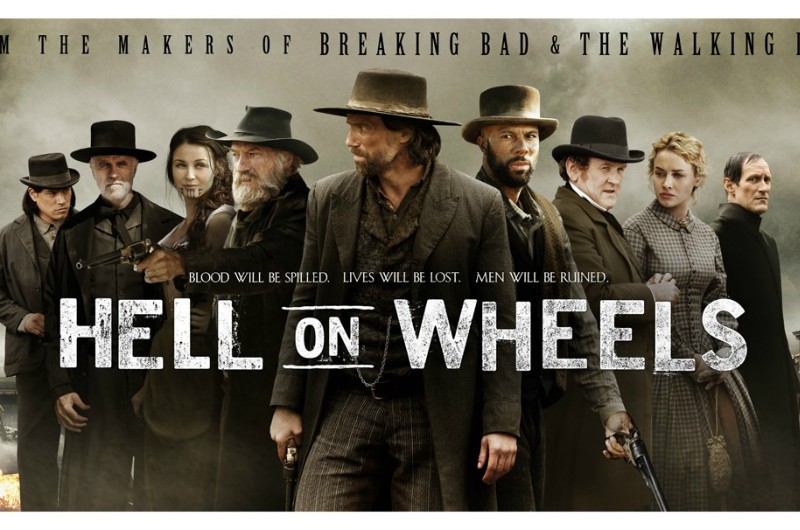How can a film be pretentious? A film is a thing - it lacks the ability to have emotion, or in this case, pretension. I can understand a director being pretentious.
Cronenberg is instant gratification for me. Regardless of whether we’re talking about his early period or his later efforts, his flicks never fail to entertain me. I really don’t care about underlying rationales for various narrative devices found in Cronenberg’s work, as it is of no importance to me whatsoever. At the end of the day, Cronenberg’s oeuvre predominantly consists of shlocky pulp fiction, but that’s not a bad thing per se, it’s just a conspicuous characteristic of his filmmaking. I think he is regarded as one of the most important filmmakers of all time by virtue of his influence in miscellaneous horror subgenres relating to body mutation and mutilation, but that doesn’t mean he’s necessarily one of the best filmmakers out there, he was merely crucial in molding the horror genre in general. Who cares. All in all, it’s just yucky-yucky fun revelling in its own repugnance. Cronenberg’s reasoning behind his plots probably springs from psychoanalysis, which is something I don’t preoccupy myself with at all. All I care about are his dexterity in the technical department and the grimy aesthetics of his filmmaking.
And I love Scanners and other early Cronenberg’s efforts, they’re neat little low-budget flicks with a very distinct atmosphere and flavor that I cherish. Sure, they’re cheap, but they’re fairly well-made, gutsy, raw and edgy garbage, I love it.
I feel a lot of Godard’s filmography hasn’t stood the test of time. While I still enjoy some of his movies such as Vivre sa vie, À bout de souffle, Le petit soldat, Alphaville and Le Mépris, a lot of his stuff is slavishly reliant on the transposition of Brechtian dramatics of Verfremdungseffekt (or whatever) into the language of cinema, which manifests itself in his perplexing montage and theatrical interjections. Once you strip the somewhat confusing exterior, what remains is the usual set of Marxist themes the French intelligentsia of the 1960s would occupy themselves with while sipping coffee in posh cafes. Heck, even Welles laughed about the superficiality of Godard’s worldview and politics. Godard’s editing methods definitely influenced the way subsequent generations of directors would view and craft movies, but his cinema is so inextricably intertwined with the zeitgeist of the 1960s, they feel a lot more dated than other Nouvelle Vague examples and they’re no longer très chic or at least not as chic as they used to be back in the day.
While a movie or any other work of art is an admittedly abstract creation subsequently divorced from its own creator, it is inevitably tinted by its creator’s artistic and intellectual sensibilities, which translate into the final product. No work of art is perfectly balanced and all imbalances are a reflection of director’s attention to different details and aspects of the executed material. If a movie seems obsessively preoccupied with its own meaning and encasing its internal philosophy while having nothing particularly original, interesting or enlightening to say, I guess you could call it pretentious. You can still enjoy some movies in spite of them being pretentious (ehm, ehm… Refn… ehm, ehm…), but if the said pretentiousness overrides all other merits, then I suppose it can debilitate the work in question quite a bit and then you can call it pretentious. I guess you could call pretentiousness a form of creative self-absorption if that makes sense: something intended to stroke one’s ego without conveying anything of worth or anything meaningful, something pompous, internally vacuous and rather meaningless. Well, that’s at least what the word means for me, it’s art criticism though and it can be applied to any example, but that doesn’t mean it doesn’t exist, it’s just descriptive and not something intrinsic. Just because a characteristic may not be universally agreed upon doesn’t mean it doesn’t exist. I hope any of this makes sense.
You should see La Chinoise then. I’d rather blow my brains out than re-watch that piece of crap. Alphaville is definitely not the most pretentious Godard, but there is definitely a fairly conspicuous strain of vacuous intellectualism easily detectable in a predominant portion of his body of work, outside of Le Mépris perhaps and a few others.
yes, wanted to write something like that, but I hoped someone would do that instead ![]()
ah, rather not, I’m interested mainly in scifi, oh wait a minute maybe La Chinoise is sf, quick wiki check: “This dark French comedy by Jean-Luc Godard focuses on a group of students who have embraced Maoist ideals and strive to incite revolution…”
Jeeezus Christ. Okay, I’m out.
You might want to watch Le Mépris and À bout de souffle because they’re considered his most representative and generally digestible works and they’re pretty good for the most part, but yeah, otherwise steer clear of Godard. AFAIK Bill San Antonio likes Pierrot Le Fou, but I hated it myself. I’ve spoken to a person that I thinks most of Godard’s most successful work came out in the 1980s, but on the other hand, El Topo apparently hated Prénom Carmen… so yeah, Godard is quite polarizing for a bunch of different reasons. Watching some Godard’s films feels by and large like a chore.
Ou, Jack Palance. And plot looks quite interesting. I’ll give it a try.
Strictly speaking you are of course right, but a movie reflects the film makers’ ideas and in the case of Godard these ideas are rather thin, they’re the kind of neo-marxist ideas and pretentions many left-wing film makers had in these days. A movie has of course no emotions, no brain either, yet we still speak of ‘stupid movies’ and I think few of us will have trouble imagining what is meant in that context: we call the movie stupid, but blame the director and/or screenwriter
I think they are actually rather complex.
Godard is still interesting, at least with the films he made up to Weekend (1967) and the films he made in the first half of the 80s. These are mostly fun to watch, and have often some poetic qualities, which gives them a repeated-viewing-value.
Not one of my favourite directors though, and I doubt that I give any of his films a 10 on my entertainometer, but also none of them gets less than a 6. (of the above mentioned time slots)
Yes films do not have a brain, but ultimately films are made so that we can use our own brains, it was Samuel Fuller who said it all in a Godard Film Pierrot le Fou about what cinema is.
…in one word emotions
I couldn’t agree more, and it’s been my moto since I first watch it
Saw Midsommar last night…
Napoleon (Gance, 1927)
At 5 1/2 hours, this is the 2nd longest film I’ve seen - the longest being The Human Condition (9 hours).
After many many years I decided to rewatch two Tarkovski’s sf classics. I didn’t think much of them back then so I was curious, if I would see them in different light nowadays:
Stalker - I watched a minidocumentary about production of the movie and was shocked by some information, for example that film probably had something to do with Tarkovski’s death. Three russian baldies wander through the Zone and they discuss various themes in hardcore philosophy mode. Well, there are some interesting scenes, but to be honest, book seemed to me a lot more engaging than this overlong cinematic masturbation. 40%
Solaris - Once again a movie which is constantly present in best sf movie lists. Not in mine though. I thought I couldn’t take it. The idea wasn’t probably very original even at the time Lem wrote about it, ideawise, it is just a normal Star Trek episode, with more philosophy shot in and protagonists blabbering to no end about their condition strange situation evoked in them, instead of analyze the situation and use it for their advantage. I didn’t like it all. 30%
![]() I like Solaris, but this ^^^^ is still a pretty fair summary.
I like Solaris, but this ^^^^ is still a pretty fair summary.
Ouch, Stalker is an all favorite of mine, with Andrei Tarkovsy’s being one cinematographic genius. Even if not, for me at least the best work of the director, Stalker is one of those works that you don’t just watch you have to experience it, the director himself said that those who watch the film searching for a meaning will miss it, Stalker much be watch like watching the view while travelling.
Yes we could make a dissertion or write a book about Stalker, is it about time, relegion, the meaning of life or just life with no meaning at all. Much more than the possible metaphores
A great piece of cinema in my view
They are enthusing about Stalker on the BBC4 Film Programme right now.
I’m also ambivalent about Tarkovski. He can seem ponderous, but I think he’s one of the very few directors who fully demonstrates the unique powers of cinema.
I’m fond of Solaris and intend to revisit his other films.
Yeah, I can put both movies in “don’t get it” shelf (“but one day I might”).
Soldier of Orange (1977)-

 1/2
1/2
The Hitcher (1986)-


John Wick Chapter 3-Parabellum (2019)-

Trinity Is Back Again (1975)- 1/2
1/2
Men in Black:International (2019)-
Just finished watching the 5 seasons of Hell on Wheels - really enjoyed this series.
You can’t go far wrong with railways & guns in the 1800’s.
The only downside was Dominique McElligott being killed off so soon…
I really need to give this a try. ![]()
Stalker is also a top favorite of mine.
Yeah, me and the wife enjoyed these too.

